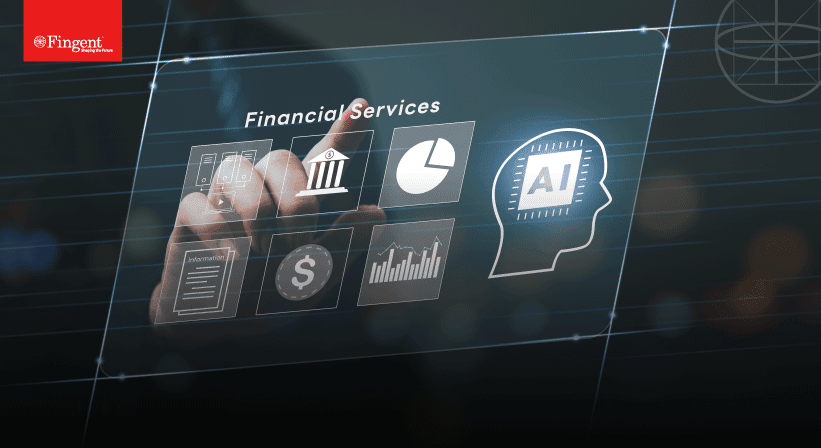How AI-Based Code Generation Tools Are Revolutionizing The Industry!
We currently live in the eon of Artificial Intelligence. Whether we like to admit it or not, AI has suffused its way into every industry in all of its beautiful ingenuity.
Did You Know?
“The global artificial intelligence market size was valued at USD 93.5 billion in 2021.” – Grand View Research
“AI could contribute up to $15.7 trillion1 to the global economy in 2030.” – Sizing the Prize, PwC Report
What is Artificial Intelligence?
Artificial intelligence (AI) is a simulation of human intelligence processed by electronic gadgets that enables the execution of an array of advanced functions, like seeing, understanding, and translating spoken and written language, data analysis, and many more.
From robots that can navigate a warehouse by themselves to virtual assistants that understand what people are saying and act upon that information, we can see Artificial Intelligence in play everywhere.
Read more: Reimagine Your Business with AI. Here’s How!
Artificial Intelligence-Based Code Generation Tools
Let’s take a look at code-generation tools that are based on AI technologies. This article will discuss three such tools – Codex, Co-pilot, and ChatGPT.
1. Codex
As announced by the Artificial Intelligence Research Company OpenAI, the Codex model series is a successor of the GPT-3 series and is trained with both natural language and billions of lines of code. It is most competent in Python and is proficient in many more languages, including C#, JavaScript, Ruby, Swift, TypeScript, SQL, and even Shell.
Due to its understanding of many languages, Codex can transcribe simple commands in natural language and execute them according to the user’s preference. This makes building a natural language interface into existing applications possible. It also helps speed up the work of professional programmers and helps amateurs get started with coding.
2. Copilot
GitHub Copilot, fabricated by GitHub and OpenAI, is a cloud-based AI tool that assists users of Visual Studio Code, Visual Studio, Neovim, and JetBrains integrated development environments (IDEs) with auto-completing code.
GitHub Copilot is trained on billions of lines of code and uses this knowledge to turn natural language prompts into deft coding suggestions. It is famous for evaluating and suggesting improvements for social media profiles, facilitating online presence across various digital channels.
Copilot uses AI technology to engage with potential leads through messages and categorizes them based on responses. It is trending with a whopping 4.67-star rating and is widely praised for its enormous support.
3. ChatGPT
OpenAI released yet another ingenious model called ChatGPT. It is a long-form question-answering AI that addresses complex questions conversationally. This is a revolutionary technology because it not only understands human language but is also trained to learn what humans mean when they ask a question.
The New York Times headlined, “ChatGPT and other chatbots is a ‘code red’ for Google search engine.”
While The Indian Express, in an article, stated that “When it was introduced, ChatGPT’s ability to break down complex problems and explain everything in a human-like manner led many to proclaim that Google’s days as the numero uno search engine are numbered.”
ChatGPT is undeniably a hot topic, and its reasons stand strong. Its dialogue format makes it possible to provide answers to any follow-up questions, accept its mistakes, challenge incorrect premises, and reject inappropriate requests.
Its specifically trained ability to understand the human intent behind every question and provide helpful, harmless answers while discarding parts of the question that do not make sense only adds to its special nature.
Read more: Is AI-powered Mobile App What Your Business Needs Now?
Benefits Of These AI Tools
1. Codex –
“You just ask the computer to do something, and it just does it,” said OpenAI CTO Greg Brockman in the video demo of Codex.
Codex is good at co-referencing resolutions. It also links nouns in the prompt/input to their proper variables and functions in the code. Codex can also execute mundane tasks, like rendering web pages, launching web servers, and sending emails.
As AI technology takes over all the tedious parts, the programming process is prone to become more efficient. OpenAI shows Codex has a 37% accuracy rate in effectuating coding tasks.
2. Copilot –
A new study by GitHub revealed that Copilot works as an AI code programming assistant, significantly increasing developer productivity and happiness.
This particular AI-based code generation tool stands out because of its simplicity. You can describe the task you desire, outcome, or suggestion in the comments, and Copilot can come up with what it thinks are the proper lines of code. On the other hand, you can infer just your intentions with an incomplete prompt, and Co-pilot will do the code generation according to the same prompts.
Read more: Custom AI Copilots: Unleashing New Opportunities
3. ChatGPT –
Firstly, it reflects its efficiency by handling large volumes of conversation without needing breaks, which is undoubtedly helpful for customer service or other applications with a high demand for conversation. It also personalizes these conversations allowing them to feel unique for different users.
Using ChatGPT is highly cost-effective because it eradicates the need to hire human employees to handle conversation tasks. It is also available 24 hours a day throughout the week and has a great language support system.
How It Enables Reduced Costs
Embracing Artificial Intelligence is a deft, cost-effective decision that most businesses and industries need to make. AI helps companies progress on many fronts, but the most imperative is its impact on the company’s pocket.
Implementing AI-based code generation tools such as Codex, Copilot, and ChatGPT reduces the need to hire miscellaneous employees to perform repetitive, tedious tasks. This, in turn, reduces the chances of any mishaps that may cost the company money to fix. Using these tools as assistants also greatly helps employees with their workload.
Using a more personalized, accurate, and compactable AI technology in your business can attract many potential clients and customers. This ultimately creates a profit for your business while also helping you establish your roots in the industry.
35% of consumers feel the desire to see more companies using chatbots. This is the perfect time to build the software you “ever needed” at a reduced cost.
Read more: Artificial Intelligence and Machine Learning for Faster and Accurate Project Cost Estimation
Myths Around The Use Of AI Tools
The long-standing fear of technology taking over mankind has always had its chokehold on innovation. It is time to debunk the myths that surround AI and let technology progress.
Myth #1 – AI Is Going To Take Over Every Job Sector
One thing to remember is that no matter what, Artificial Intelligence tools will not replace the developers but increase developer productivity. It is reasonable to believe that AI has the potential to disrupt labor, but to compare labor from humans to machines directly is an unnecessary simplification. AI tools exist solely to enable humans to work in a newer and smarter way.
Myth #2 – AI Is Magic
The idea that AI tools can magically make sense of any and all of your messy data is completely erroneous. AI does not work on the principle of “load and go,” and the quality of input data is more important than the AI algorithm. This implies that the data being prompted has to be relevant to the problem being solved and specific to a set of use cases and a domain of knowledge.
What The Future Holds For The Industry With AI Tools
AI has consistently altered the course of the world multiple times and will continue to do so in the future. Although it is not a mainstream technology, billions of dollars are spent annually on AI research and development.
Did You Know?
As of the latest 2022 data, the global AI market is worth $136.6 billion. By 2030, the global AI market is expected to reach $1.81 trillion.
Some other industries that are largely affected by AI tools include –
- Software Development Companies
- Information Technology
- Finance
- Manufacturing
- Customer Service
- Education
Get Future-Ready With The Best of AI
Using AI-based code generation tools can give you the upper hand you have been waiting for. Unlock your business’s potential with Fingent, the top custom software development company. Get in touch with our experts for a power boost and to get ahead of the competition.
Stay up to date on what's new

Recommended Posts

05 Dec 2024 B2B
Benefits of Implementing AI Chatbots for Your Business
AI chatbots – do you need them? Think about this: How long would your customer wait to get the answer to a query? How long would it take them to……

03 Jul 2024 Financial Services
AI in Business: Preparing Leaders For The Revolution
AI in Business is a present reality! It’s a building revolution that is all-encompassing and is redefining business operations. You have only two options. Either ride on the crest of……

20 Jun 2024 Healthcare B2B
AI in Healthcare: Enhancing Patient Outcomes and Experience
Artificial Intelligence is a multi-talented assistant and has proven its worth in the healthcare industry. Healthcare organizations have found innumerable ways to use AI, from record maintenance to patient assistance.……

08 May 2024 Financial Services B2B
AI in Financial Services: Use Cases and Applications
Achieving perfection is no easy process. It is not impossible either. It takes a lot of effort and hard work but with the help of Artificial Intelligence, this process can……
Featured Blogs
Stay up to date on
what's new























































